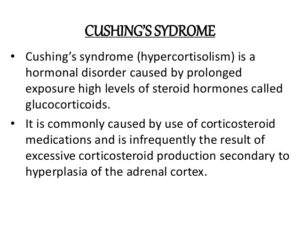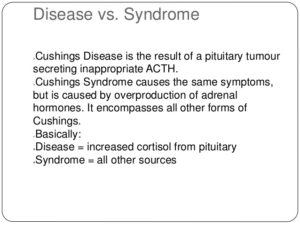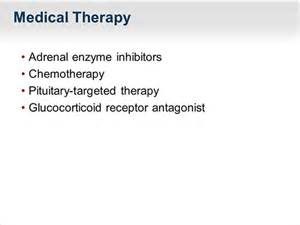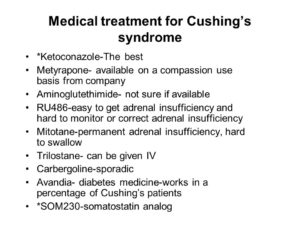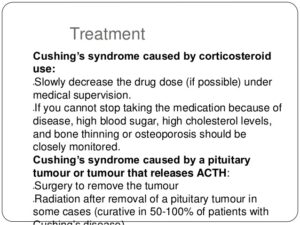What you can expect is your doctor will do a physical examine your entire body to look for specific physical signs of Cushing’s disease and may do tests to better understand your symptoms, what we call diagnostic tooling.
Confirm hypercortisolism
Medical tests will be performed to measure the level of cortisol in the body. These tests should only be done when a form of Cushing’s syndrome(including Cushing’s disease) is highly suspected.
-24 hour urinary free cortisol (UFC) –
Measures the level of cortisol in your urine over a 24-hour period. If the levels are too high, then you may have Cushing’s disease or Cushing’s syndrome. This test is often used because it only measures the type of cortisol that causes Cushing’s disease, called “circulating cortisol,” and may be more accurate than other tests that measure cortisol levels
Because of the difficulty in obtaining 24-hour urine collections in many outpatients, some physicians use a l-mg overnight dexamethasone suppression test. For this test, the patient takes l mg of dexamethasone orally at 11 p.m., and the plasma cortisol level is measured at 8 a.m. the following day (normal value: 5 μg per dL or less [140 nmol per L]). The reported sensitivity of this test is 98 percent; the reported specificity is 80 percent.
Obesity, chronic illness, chronic alcoholism and depression can cause false-positive results (pseudo-Cushing’s syndrome) on the 1-mg dexamethasone suppression test and mildly elevated free cortisol values on the 24-hour urine collection.
If the result of the dexamethasone suppression test is abnormal or the 24-hour urinary free cortisol level is mildly elevated, a confirmatory test for Cushing’s syndrome is needed. The 24-hour urine collection for urinary free cortisol excretion can be used to confirm the result of the l-mg dexamethasone suppression test. Normal findings on both tests provide strong evidence against the presence of Cushing’s syndrome. However, when Cushing’s syndrome is still strongly suspected based on the clinical findings, negative tests should be repeated; the tests should also be performed again in three to six months.
Determine if Cushing’s disease is the cause of hypercortisolism
-Adrenocorticotropic Hormone (ACTH) test-
Measures if the amount of ACTH in your blood is higher than normal.
If your ACTH levels are high or normal, then you may have a tumor that is producing ACTH.
ACTH-producing tumors are most often found on the pituitary (Cushing’s disease).
ACTH-producing tumors may be in other areas of the body (called ectopic Cushing’s syndrome) If your ACTH levels are low, you may have Cushing’s syndrome due to a different cause or another condition. Additional tests will be done to confirm whether or not you have Cushing’s syndrome
Treatment of cushings syndrome is by castigation of the underlying cause.
Treatments for Cushing’s syndrome are contrived to pass your body’s cortisol production to normal. By indurate, or even distinctly lowering cortisol levels, you’ll feel evident improvements in your signs and symptoms. Left untreated, however, Cushing’s syndrome can finally induce to death. The treatment choice depend on the cause. For example:
-If a tumour in an adrenal gland is the reason, an operation to withdraw it will cure the condition.
– For adrenal hyperplasia, both adrenal glands may require to be withdraw. You will then require to take lifelong replacement therapy of several adrenal hormones.
-Other tumours in the body that produce ‘ectopic’ ACTH may be able to be removed, depending on the kind of tumour, where it is, etc.
-Medication to block the production or consequence of cortisol may be an choice.
